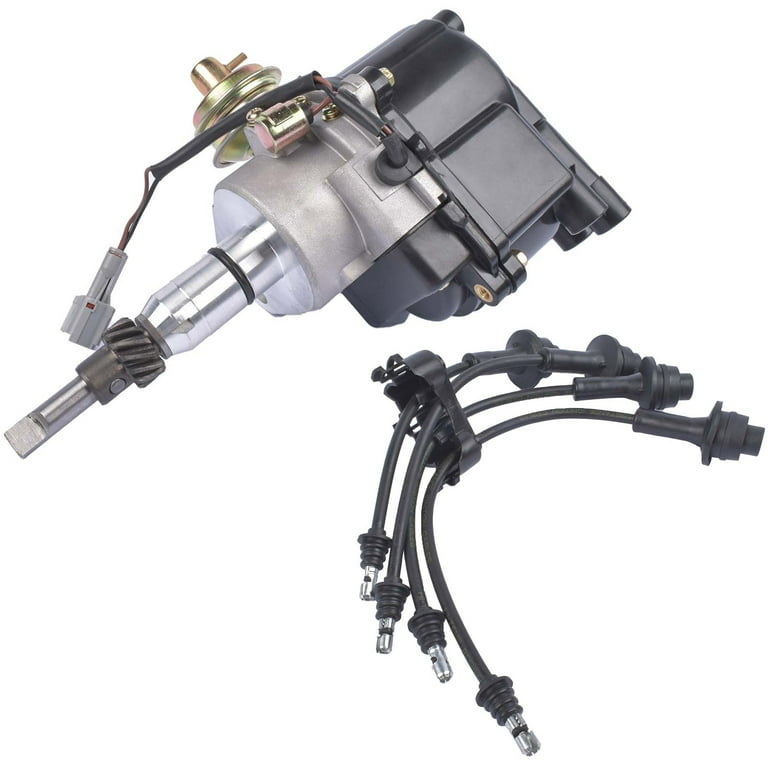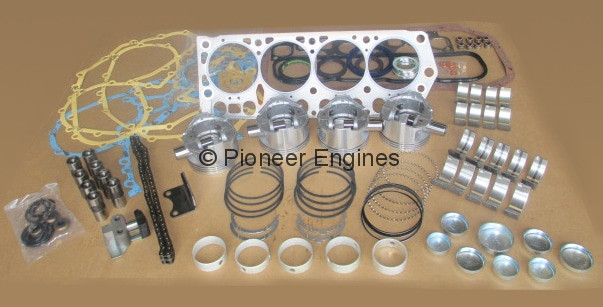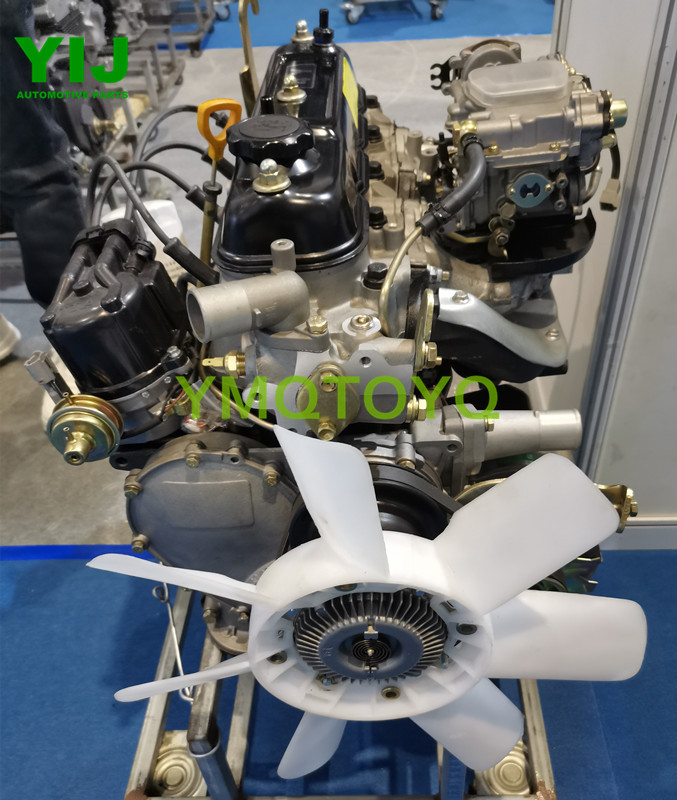The Best Upgrades for Improving the Efficiency of Your 4Y Engine
The Best Upgrades for Improving the Efficiency of Your 4Y Engine
Blog Article
Checking Out the Different Sorts Of Engine: Which One Fits Your Demands?
Inner burning engines proceed to control due to their dependability, while electric engines are acquiring traction for their sustainability. Hybrid engines offer a versatile compromise, and diesel engines stand out for their power in requiring applications.

Interior Combustion Engines
Inner burning engines (ICEs) are the backbone of modern-day transport, powering a substantial selection of cars from cars to airplanes. These engines operate the principle of transforming fuel right into mechanical energy via a collection of controlled surges within a combustion chamber. One of the most typical kinds of ICEs include fuel engines, diesel motor, and rotating engines, each developed to meet particular performance and efficiency demands.
Gas engines usually utilize stimulate ignition, while diesel motor depend on compression ignition, causing unique distinctions in fuel effectiveness and power output (4y engine). Rotating engines, or Wankel engines, offer a portable style and smooth procedure, yet are much less frequently utilized in mainstream applications
ICEs have actually gone through substantial improvements in technology, including the intro of turbocharging and gas injection systems, which improve total efficiency and performance. In spite of their performance improvements, ICEs deal with raising scrutiny because of their ecological impact, especially pertaining to greenhouse gas emissions. As the automobile industry develops, the future of ICEs stays a subject of dispute, stabilizing performance, performance, and environmental considerations. They proceed to play a critical duty in global transportation infrastructure.
Electric Engines
As worries about environmental sustainability and fossil gas dependence grow, electrical engines have actually arised as a compelling option to interior burning engines. These engines make use of electric motors powered by batteries or fuel cells, offering a cleaner and more efficient ways of propulsion.
Among the primary benefits of electrical engines is their lowered exhausts. Unlike traditional engines that burn nonrenewable fuel sources, electric engines produce zero tailpipe emissions, considerably lowering air contamination and adding to enhanced public health. Additionally, the performance of electric motors commonly surpasses that of interior burning engines, transforming a greater percentage of energy from the source of power into functional energy for motion.
Electric engines are additionally significant for their quiet operation, making them perfect for city atmospheres. 4y engine. The simplicity of their style results in less relocating components, which can lead to lowered maintenance prices and boosted reliability with time
However, obstacles remain, consisting of battery production effects, charging facilities, and variety limitations. In spite of these difficulties, the growing financial investment in electric automobile technology and renewable resource sources factors toward an encouraging future for electric engines, placed to play a critical role in the transition toward lasting transport.
Hybrid Engines
Blending the advantages of both electrical and traditional internal combustion engines, hybrid engines stand for a versatile option in the pursuit for efficient and sustainable transportation. These engines incorporate a gasoline or diesel engine with an electric motor, enabling enhanced gas efficiency and lowered discharges contrasted to traditional lorries.
Hybrid engines run in numerous modes, using the electric motor for low-speed driving and the interior combustion engine for greater speeds or when more have a peek at these guys power is required. This vibrant operation not only enhances gas economic climate but also adds to a smoother driving experience. Regenerative braking is one more critical function, recording energy commonly shed during braking and redirecting it to recharge the battery.

As customers significantly focus on eco-friendliness, hybrid engines stand out as a useful choice, supplying an efficient balance of efficiency, performance, and environmental responsibility. This flexibility makes them appropriate for urban travelling and long-distance travel alike.
Diesel Motor
Effectiveness and power are trademarks of diesel motor, which have long been preferred for their toughness and gas economic situation. These engines operate on the principle of compression ignition, where air is pressed to a high temperature prior to fuel is infused, igniting it without the demand for ignition system. why not check here This procedure enables diesel engines to attain higher thermal performance compared to gas engines, translating right into better gas mileage and reduced carbon dioxide discharges.
Diesel engines are specifically well-suited for durable applications such as vehicles, buses, and commercial equipment, where torque and resilience are extremely important. Their design normally consists of more powerful components to endure the greater stress created throughout operation, resulting in longer service life and minimized upkeep prices.

Alternate Fuel Engines
While diesel engines have long controlled the landscape of durable power sources, alternative fuel engines are obtaining grip as practical options for a more lasting future. These engines use a variety of gas, such as pressed natural gas (CNG), ethanol, gas, and hydrogen, intending to lower greenhouse gas emissions and reliance on nonrenewable fuel sources.
One substantial benefit of different fuel engines is their potential to reduced carbon impacts. For example, CNG engines send out less pollutants contrasted to conventional diesel engines, making them suitable for city transit systems and fleets looking for to improve air quality. Ethanol, stemmed from biomass, not only reduces discharges however additionally supports farming economic climates.
Hydrogen fuel cells represent an advanced growth in this realm, using zero-emission power through a chemical response in between hydrogen and oxygen. Obstacles such as framework advancement and manufacturing expenses stay obstacles to prevalent adoption.
Verdict
Interior burning engines offer reliability, while electric engines prioritize sustainability and reduced upkeep. Hybrid engines incorporate the advantages of both, boosting effectiveness, whereas diesel engines supply exceptional power and torque for heavy-duty applications.
Hybrid engines supply a functional compromise, and diesel engines stand out for their power in demanding applications. The most common types of ICEs consist of fuel engines, diesel engines, and rotating engines, each designed to blog meet specific efficiency and performance needs.
Unlike typical engines that shed fossil gas, electrical engines produce zero tailpipe emissions, substantially decreasing air pollution and contributing to improved public wellness.Crossbreed engines operate in a number of settings, utilizing the electrical motor for low-speed driving and the internal burning engine for greater speeds or when even more power is needed. Crossbreed engines incorporate the benefits of both, enhancing effectiveness, whereas diesel engines offer premium power and torque for heavy-duty applications.
Report this page